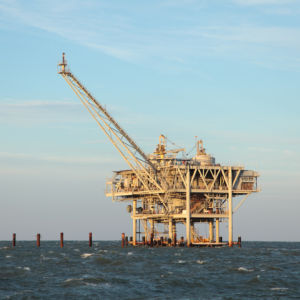Offshore energy development works for the states — all of them. The U.S. Interior Department announced recently that $61.6 million in revenues from offshore oil and natural gas will be distributed to all 50 states, U.S. territories and the District of Columbia for grants that support conservation and outdoor recreation projects.
You don’t have to be a coastal state, you don’t have to be a producing state. Under the Gulf of Mexico Energy Security Act (GOMESA), everyone benefits from offshore natural gas and oil revenues earmarked for Land and Water Conservation Fund (LWCF) grants.
“Using zero taxpayer dollars, the LWCF also invests earnings from offshore oil and gas leasing to conserve outdoor recreation areas for public use and enjoyment,” Interior said in its LWCF announcement. “The funds enable state and local governments to improve park and other recreation areas in their communities by rehabilitating and upgrading existing parks, creating brand-new parks in places that have none, and developing and expanding trail systems that link communities to each other and to additional outdoor recreation opportunities.”
Federal offshore revenues going into LWCF grants is just a part of the economic/revenue benefits afforded by offshore oil and natural gas development.
Earlier this year API released studies showing that increasing access on the Atlantic, Pacific, Eastern Gulf and Alaska outer continental shelf (OCS) could generate billions in industry spending and federal revenue streams that could be shared with the states — as already is happening under GOMESA through offshore–
Through GOMESA, 12.5 percent of offshore oil and natural gas revenues are allocated to LWCF, while 37.5 percent of all qualified OCS revenues — including bonus bids, rentals and production royalty — is shared with Alabama, Louisiana, Mississippi and Texas. Similar general revenue-sharing agreements could be legislated for other coastal states that host offshore development. The
The key is access. Currently, 94 percent of the OCS under federal control is off limits to safe energy development. Encouragingly, the administration is putting together a new five-year leasing program that promises to open more areas to exploration and development. This is fundamental to our nation’s energy and economic prosperity and its security.
This month API announced the launch of “Explore Offshore,” a coalition of more than 100 local leaders, community organizations, businesses and associationsfrom five Atlantic and Gulf Coast states that supports increased offshore access.
“It is … undeniable that for the foreseeable future, oil and natural gas will be the greatest drivers of the world’s economies,” Explore Offshore national co-chairs Jim Webb and Jim Nicholson wrote recently. “Here at home, oil and gas are expected to generate more than 60 percent of America’s energy for at least the next 30 years, even with the welcome use of renewables continuing to be on the rise. That said, it is time to correct an oversight in America’s move toward an ‘all-of-the-above’ energy policy: the unnecessarily restrictive approach to the exploration and safe development of oil and natural gas resources that lie offshore.”
Webb, a former U.S. senator from Virginia and former U.S. Navy secretary, and Nicholson, the former Veterans Affairs secretary, write that the United States is one of the only countries along the Atlantic that’s not actively exploring for energy in those waters. They point out that Mexico has leased more than 20 million new acres on its side of the Gulf of Mexico in the last four years, bringing its total to more than 30 million acres — more than double that of the United States’ 14.7 million.
Given the time it takes to develop offshore reserves, Webb and Nicholson argue that steps must be taken now to ensure future energy production. The United States — with its strict environmental regulations and safety policies and industry’s advanced technologies — is better positioned than other nations to develop safely and responsibly its offshore energy — energy that would strengthen America’s security.
“As our demand for reliable and affordable energy continues to grow, the long-term question is, whether we will have the national foresight and courage to attain our energy independence,” Webb and Nicholson wrote. “We both have military backgrounds. One of us was Secretary of the Navy, the other Secretary of Veterans Affairs. We both saw extensive combat in Vietnam. And we both strongly agree that a nation must first be energy secure in order to be truly secure.”
As federal officials develop the new offshore leasing program, they should consider the great opportunity at hand to support energy and economic opportunity with a robust offshore blueprint for the future.

